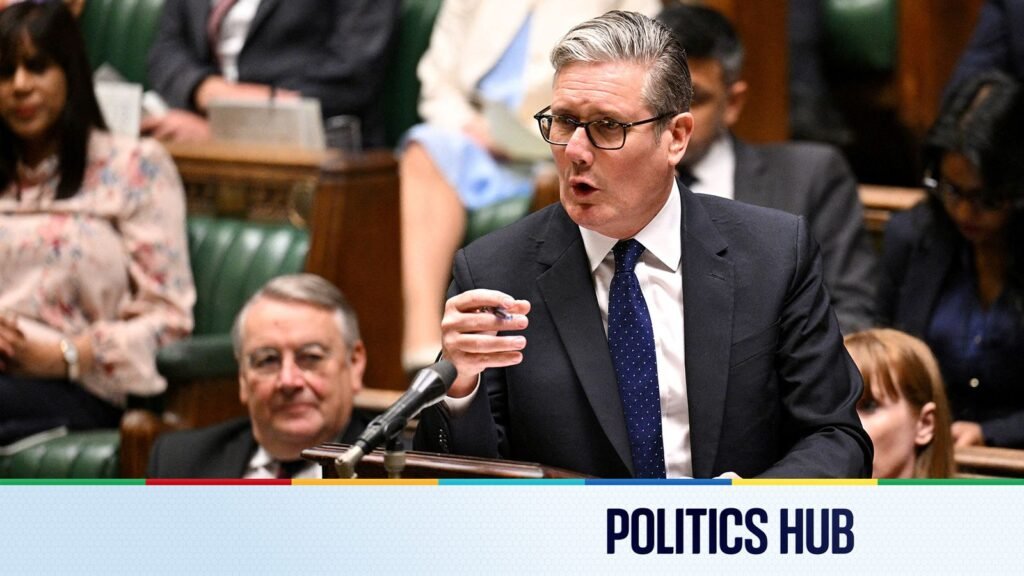Now Reading: Current student loan borrowers spared from Trump GOP tax bill
-
01
Current student loan borrowers spared from Trump GOP tax bill
Current student loan borrowers spared from Trump GOP tax bill

Senate budget rules will prevent Republicans’ new repayment plans from applying to current borrowers, the parliamentarian said.

GOP-led states block Biden’s latest student debt relief plan
Touted the most affordable student loan repayment plan ever, the SAVE plan would have provided debt relief to over 30 million Americans.
WASHINGTON – President Donald Trump and Senate Republicans will need to move forward with their major tax, spending and policy bill without making a major shift in repayment plans for current student loan borrowers, according to a ruling from the Senate parliamentarian.
The June 25 decision from the Senate’s leading rules expert, Elizabeth MacDonough, is another blow to the president and his GOP allies as they look for ways to placate fiscal conservatives concerned about voting for the measure if it doesn’t also make steep enough cuts to federal spending.
Lawmakers are hurrying under pressure from the White House to pass the overall Senate bill as early as this weekend with an eye on getting the entire package to the president for signature into law by a self-imposed July 4 deadline. At the moment, it’s unclear if Trump and Senate GOP leaders can muster the 50 votes needed from within their own party given they cannot count on any Democratic support.
Republicans are trying to move the overall Trump legislative package under Senate rules that allow a simple majority to approve the bill. But to do that, all the provisions inside the legislation must directly impact the federal budget.
Enter MacDonough, who has recently ruled out a number of other items that didn’t meet that criteria but were seen as sweeteners for Republicans to vote yes on the Senate’s version of the measure, including proposed changes to Medicaid, efforts to curb environmental rules, attempts to restrict federal judges’ powers and plans to bulk up immigration enforcement.
At issue on federal student loans is a GOP proposal to slash the number of repayment plans available to borrowers. Both the Republican-led House and Senate have been working on a new framework that would include one standard plan, in which borrowers would make fixed payments for 10 to 25 years based on their loan amounts, and another “Repayment Assistance Plan” based on income.
According to a summary from Democrats, the Senate parliamentarian said only new borrowers can be restricted to just those two plans.
Big changes are still on the way for federal student loan programs. But the parliamentarian’s decision means they’re more likely to affect new borrowers, rather than the over 40 million Americans who already have student loan debt.
It also means that the roughly eight million borrowers enrolled in SAVE – President Joe Biden’s signature student loan repayment plan – will remain in limbo while waiting for a judge to make a decision about the program’s legality.
The independent Congressional Budget Office estimated in May, based on the House’s version of the bill, that changing the repayment terms for current student loan borrowers could have saved more than $160 billion annually.
Loan forgiveness change nixed; others under review
The parliamentarian axed several other provisions that could have had big implications for student loan borrowers and colleges.
She scrapped a measure that would’ve deemed some non-U.S. citizen students ineligible for federal financial aid. She also eliminated a change that would’ve disqualified doctors and dentists from a type of student loan relief. And she struck down a portion of the bill meant to expand Pell Grants to weekslong career-training programs. If Republicans can get enough support from Democrats on those items to pass the 60-vote threshold in the Senate, they could still pass.
MacDonough is still considering whether or not to push back on a few of the bill’s other measures, including provisions to make it harder for borrowers who’ve been defrauded – or whose colleges abruptly closed – to get their student debt canceled.
Zachary Schermele is an education reporter for USA TODAY. You can reach him by email at zschermele@usatoday.com. Follow him on X at @ZachSchermele and Bluesky at @zachschermele.bsky.social.


















































